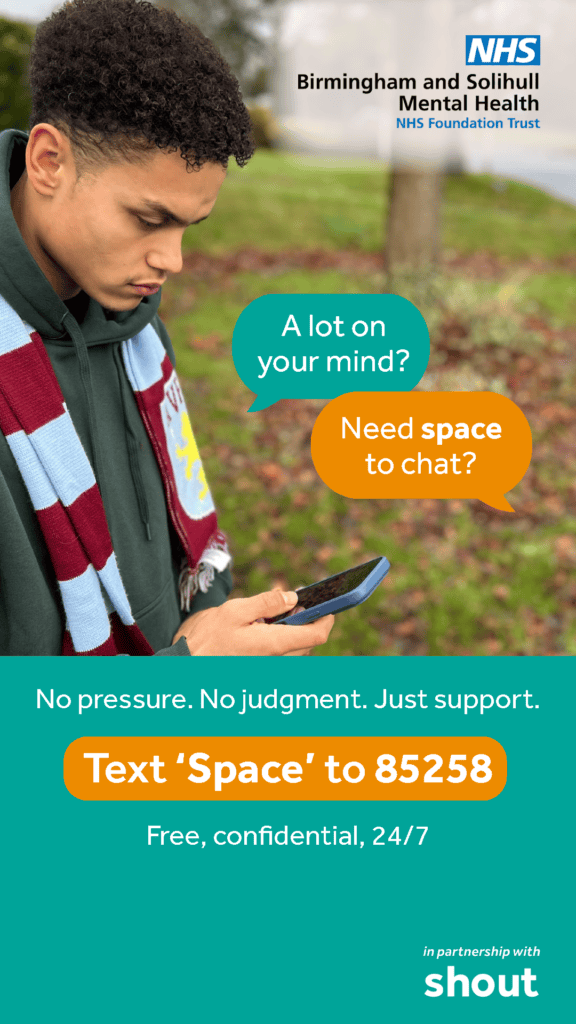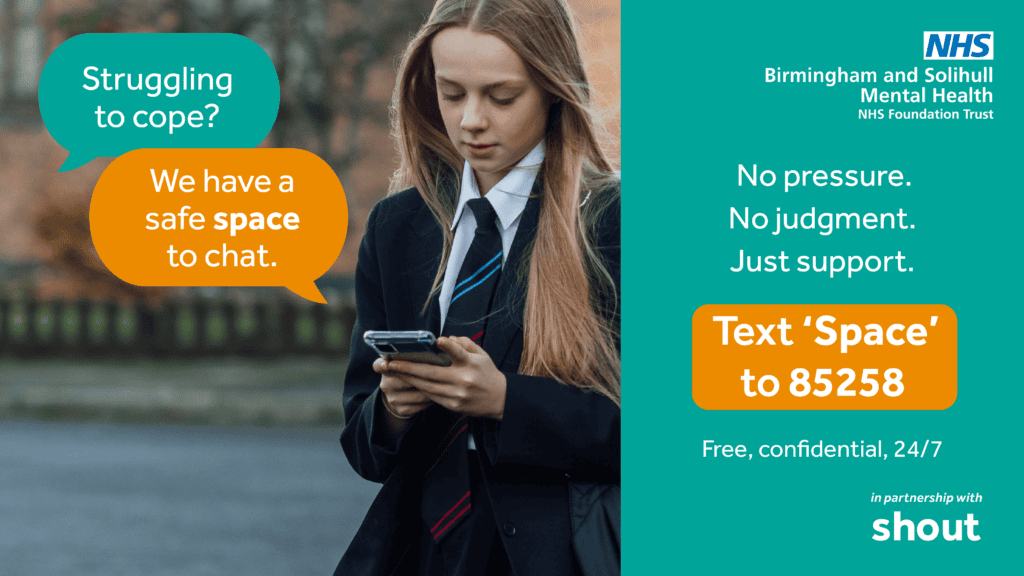Parenting is challenging, no matter what state of health you’re in. Having children can be very stressful, but if you have a mental health problem, you may have more concerns or difficulties.
It’s important to remember that many parents with mental health problems can care for their children in a safe and loving way. But sometimes, you might need extra support from family, friends, or healthcare professionals to get you through difficult times.
One in four people in the UK experience mental health problems each year. Which means you probably aren’t the only parent struggling. Aside from your own mental health and wellbeing, you’re a provider, a teacher, a nurse, a chef, a cleaner and so much more. It’s normal to feel overwhelmed when trying to juggle it all.
There’s no shame in needing extra help as a parent.
When you’re unwell, you may:
- Find it difficult to be active with your children, for example, you may have low energy
- Avoid going places due to your anxieties
- Struggle to manage your mood or emotions around your children
You may also worry about stigma or discrimination from other people making assumptions or judgements about mental health.
The average pressures of day-to-day life are heightened as a parent, even more so when you have a mental health problem, so it’s important that you know the right place to go to get help if you need it.
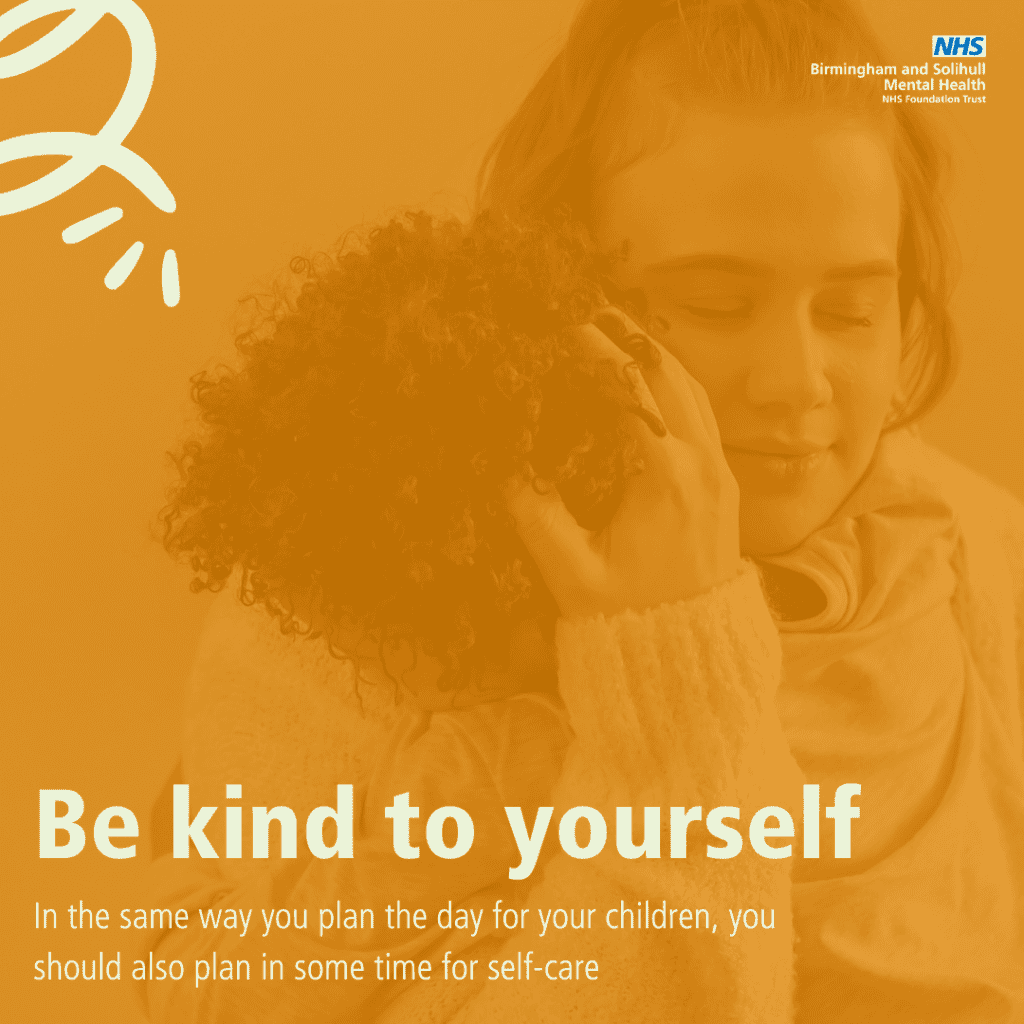
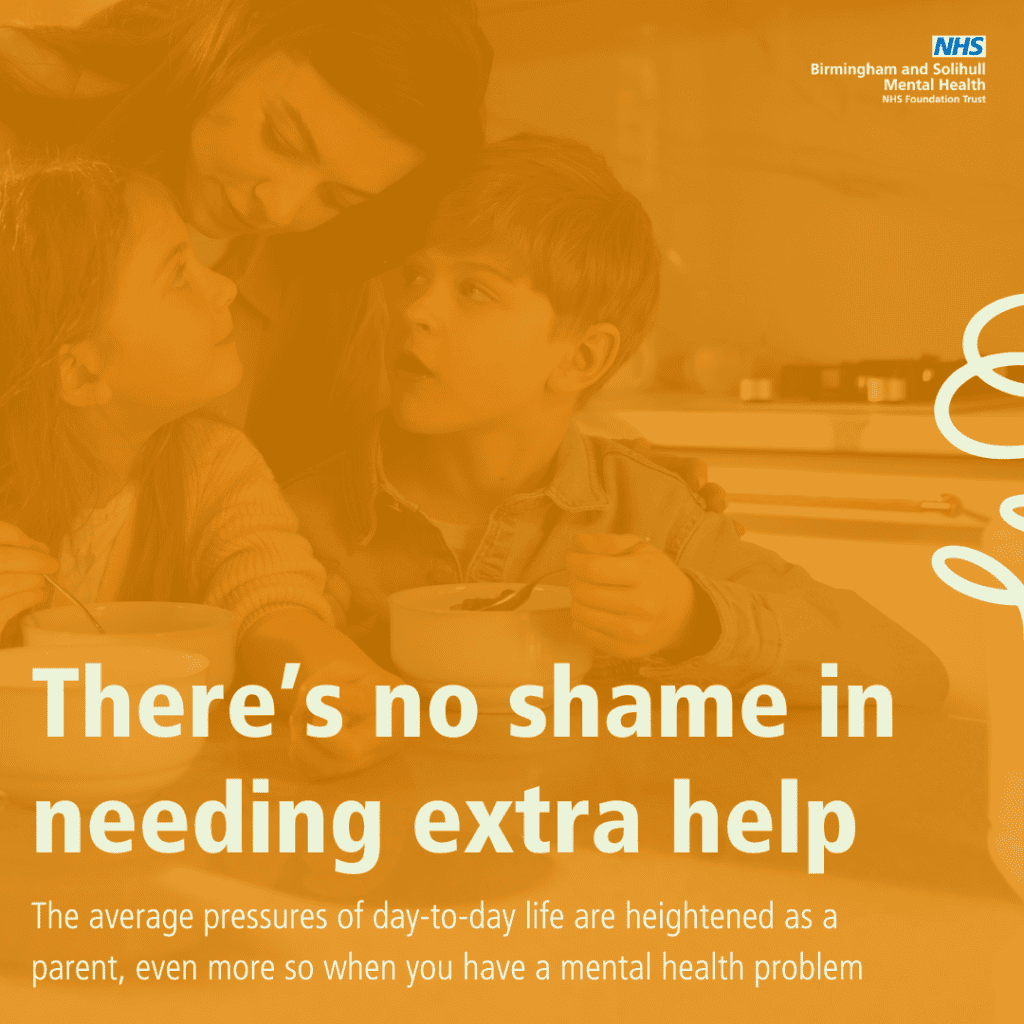
Be kind to yourself
It’s ok if you cannot do everything. Sometimes, your children may communicate that they are bored or sometimes things may not go to plan.
Share with others
Don’t be afraid to be open, honest and share how you feel with other parents as this can often be a positive experience where you gain perspective, shared experiences, support and reassurance. Sometimes, it can help to know that there are others out there who understand how you feel and may have useful advice going forward.
Physical Activity
Physical activity is beneficial for your mental and physical wellbeing. You can also involve your family e.g. going for walks, bike rides, hiking, badminton, hula-hooping or a YouTube workout video. Keeping your body active helps to manage your stress levels and your child’s.
Schedule time for self-care
In the same way you plan the day for your children, you should also plan in some time for self-care. This can be 15 – 30 minutes each day or a few times a week. Making a cup of tea, going for a walk, phoning a friend, putting on a face mask, having a bath etc. This can really help towards restoring your energy.
Set a sleep schedule
Summer holidays should still include a level of routine. Regular bedtimes for your children throughout the summer can be helpful. Not only does it ensure your children have a good night’s sleep but it can help create time for yourself at the end of the day.
Social media vs mindfulness
Don’t under-estimate the power of yoga, meditation, or breathing exercises, they can be incredibly useful when managing stress and anxiety. A few minutes a day can be powerful, so consider the amount of time you spend on social media, as some of this time can be spent on mindfulness. Also, beware of social media, sometimes this can lead to thinking traps of what we call ‘compare and despair’ which is where we look at the highlights of other people’s lives and dwell on our own.
Be flexible and open to change
Having plans in place can help to think about activities in a more structured way however, it’s good to also be flexible. Sometimes things do not go to plan, things can happen unexpectedly and life can sometimes get in the way. Learning how to adapt to change can help to reduce stress and anxiety. An accessible family calendar for all to see, can be very effective.
Including the children’s choices
Children like to have a say and be included. Allow your children to choose between two activities and rotate the decision making if you have more than one child.
If you are struggling with feelings of depression, excessive worry, social anxiety, post-traumatic stress or obsessions and compulsions, NHS Talking Therapies can help. The service is effective, confidential, and free. Your GP can refer you or refer yourself at nhs.uk/talk.
Useful resources for parents:
- Birmingham Forward Steps – Delivering early years health and wellbeing for children aged 0-5 in Birmingham
- Acacia Family Support – They offer a range of free services including peer led listening and befriending support to families across Birmingham experiencing pre and postnatal depression/anxiety. However you are feeling and whatever you are going through, they are here to help
- Stem4 charity has created a free booklet about ‘Creating Positive Relationships’ for parents and children for Parent Mental Health Day.
- Family Action and Family Rights Group both offer a range of practical and emotional support for parents
- Family Lives offers online parenting courses and advice videos, among other support for parents
- Home-Start helps families with young children through challenging times, offering home visits from trained volunteers, group support and help getting local services
- Gingerbread offers advice and support for single parents
- Mind gives useful tips on how to talk to a young person about their mental health
- Carers Trust offers advice on how to take care of yourself, even if you’re busy looking after someone else
- Our Perinatal Mental Health service provides a safe, high quality, family friendly, mental health service – including assessment, treatment and care – for women suffering from psychiatric disorders associated with pregnancy and childbirth.

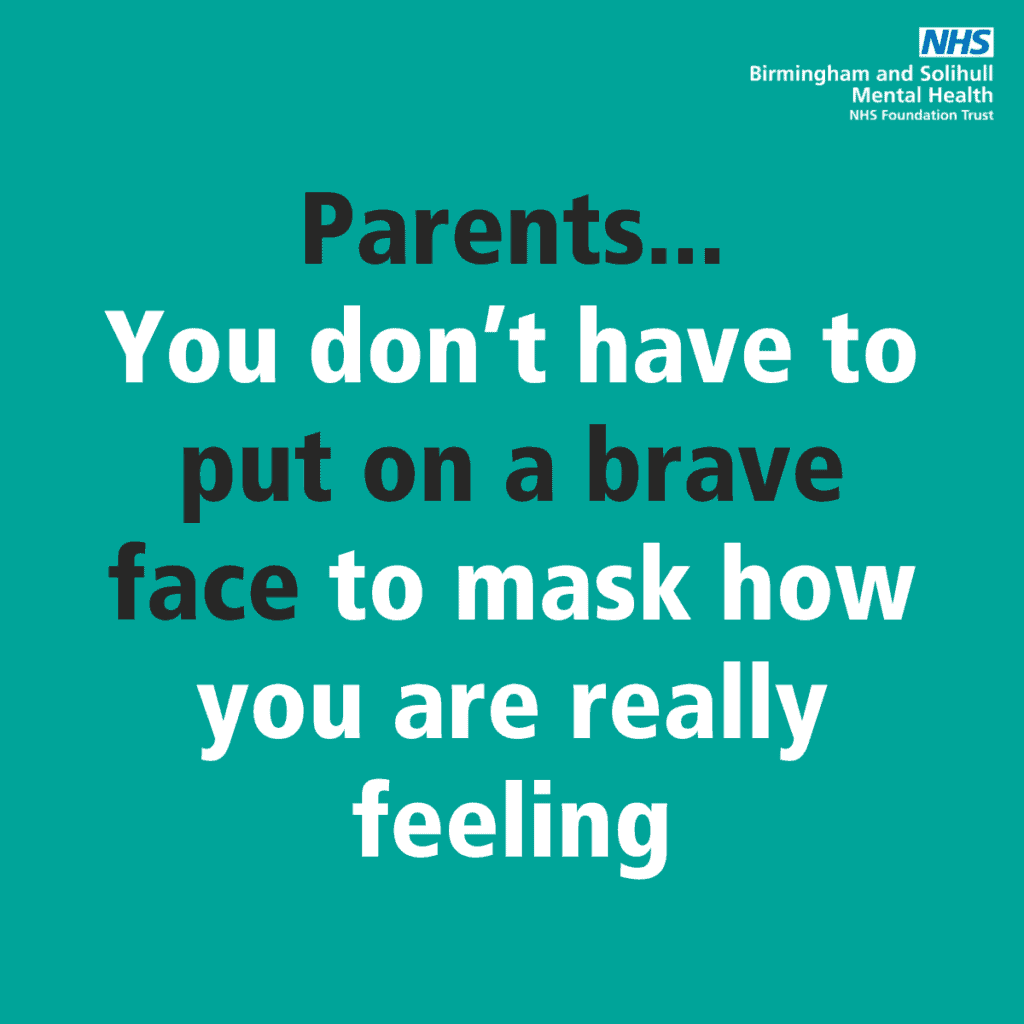
Published: 27 January 2024






